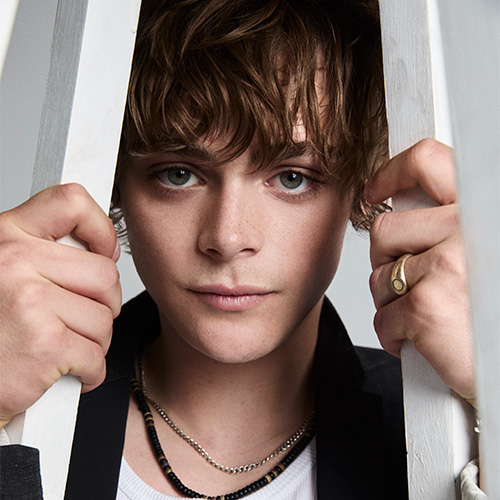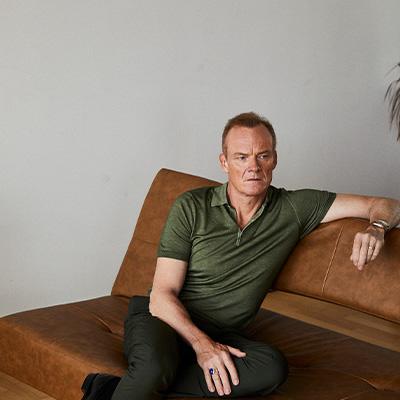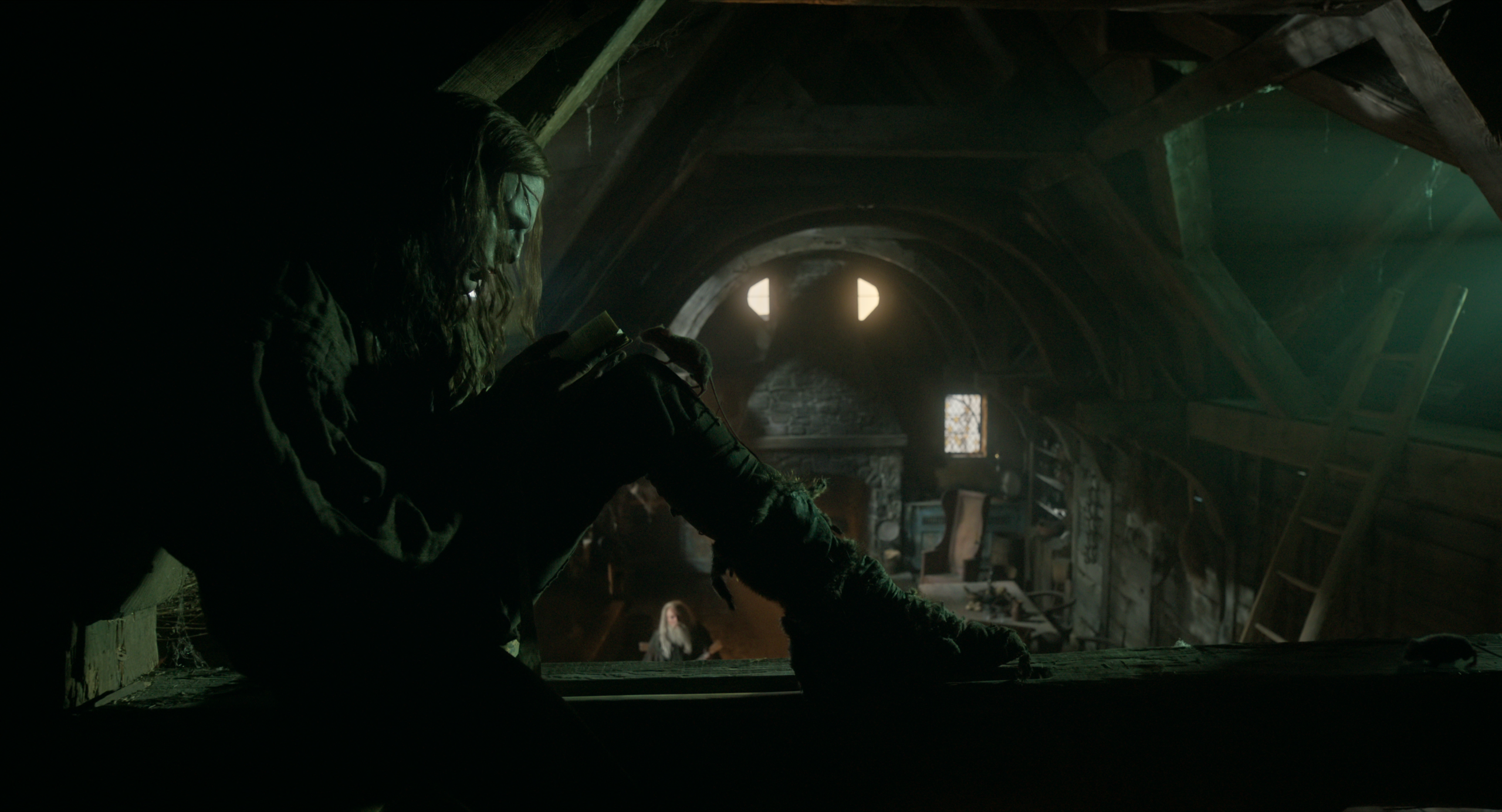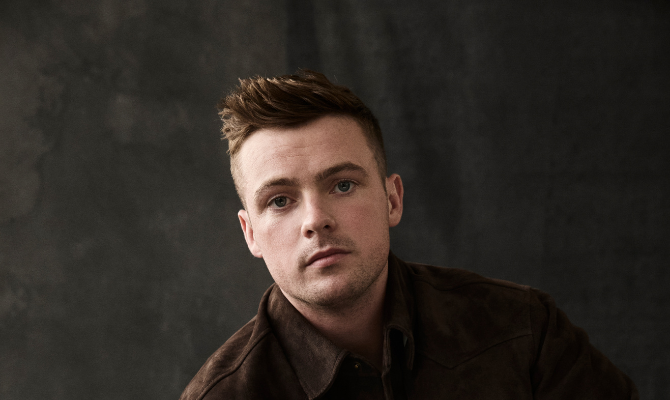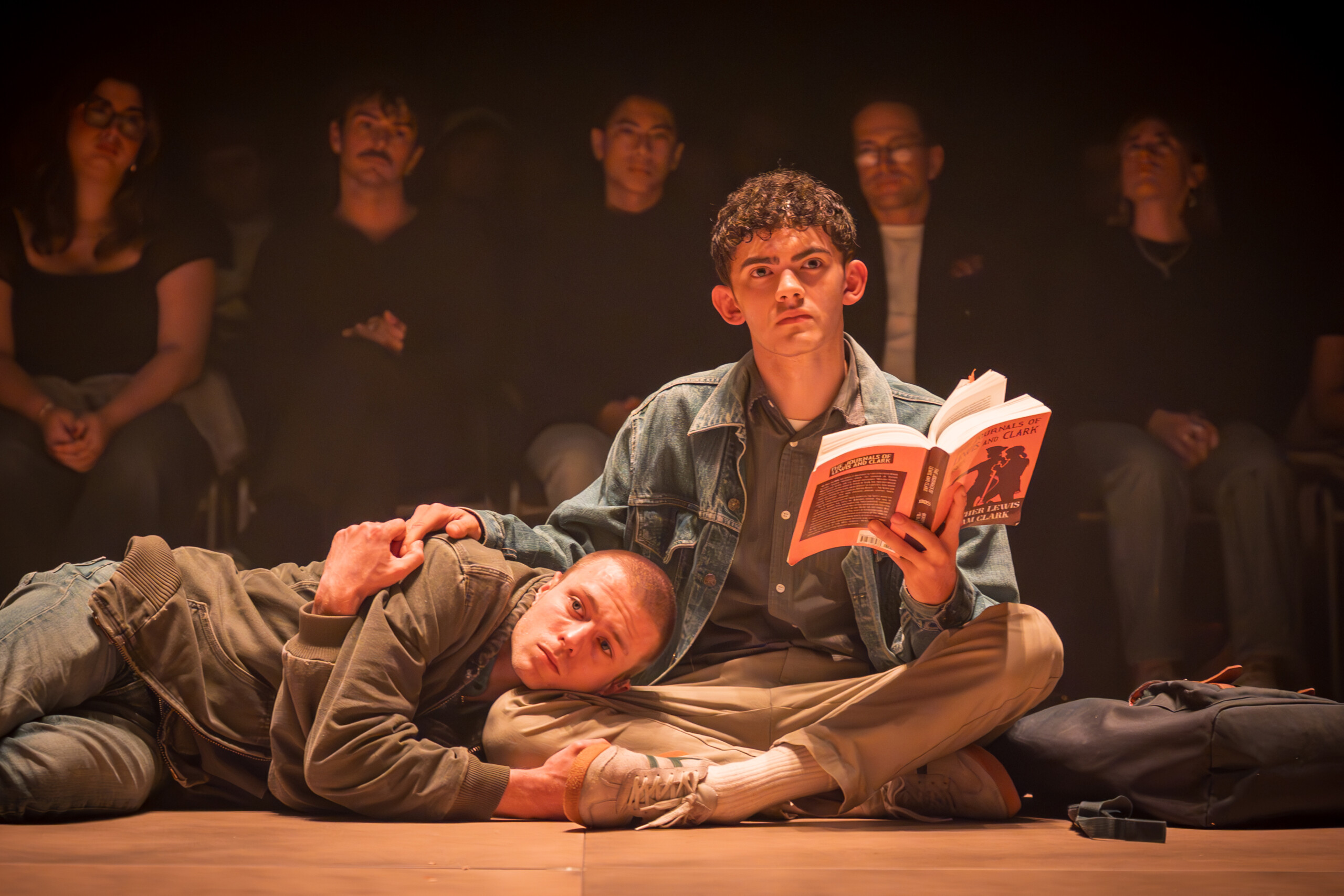
There are plays that entertain and plays that expose Clarkston does both, though not always evenly. Samuel D. Hunter’s quietly devastating coming-of-age story, set in a modest American town and staged with understated realism, invites us into the lives of two young men united by longing, loss, and the dream of escape. In the fluorescent glow of a Costco night shift, Jake (Joe Locke) and Chris (Ruaridh Mollica) forge a friendship that feels as fragile as it is transformative. One is a restless romantic chasing a fading legacy; the other, a young man tethered by responsibility and addiction’s shadow. What unfolds is a tender, flawed, and deeply human exploration of failure and how, even when we fall short, connection remains our most enduring form of survival.
‘Clarkston’, a coming of age play about friendship, forgiveness, and survival is set in an ordinary American town. It follows two ordinary American boys as they struggle to navigate their ordinary American life. From two ends of the socio-economic spectrum, Charlie and Jake meet during a Costco night shift in the eponymous town of “Clarkston”, Washington. From the first scene, Samuel D Hunter’s play already establishes the conflict between the two protagonists. Both gay, one partially closeted and the other terminally ill, it is clear that they inevitably will play a large role in each other’s journeys. The latter, Jake, was recently diagnosed with Huntington’s disease and upon getting dumped by his ex boyfriend, leaves Connecticut to embark on a quest to reach the Pacific. His goal stems from an idealisation of his distant relative William Clark, an explorer who pioneered the American westward expansion.
Chris’ turmoil on the other hand stems from balancing his tumultuous relationship with his mother, a recovering addict, and his dreams of leaving Clarkston behind. Together, the two boys battle their demons and learn the importance of friendship.
Hunter includes a plethora of relevant and culturally important themes in the play such as the hardships of being ‘different’ in rural America, the frustration of not achieving your dreams, the prevalence of homophobia in the 21st century, drug use and the difficulty of loving an addict. However, in my opinion, the overarching theme of the play is ‘failure’. ‘Failure’ is omnipresent in every relationship dynamic, individual action and character arc. All the characters’ actions result in, to a certain extent, them failing. Failing to abide by social norms, failing to reach their dreams and failing to stick to the promises they made are only a few of the many failures faced by the three characters. However, through Jake’s goal of traveling west to reach the ocean, ‘Clarkston’ highlights the importance of resilience when faced with disappointment.
Despite its thematic richness, the play often feels as if it only grazes the surface of the issues it introduces. The audience is immediately drawn into the tension of the characters’ lives, yet left waiting for deeper exploration that never quite arrives. Because the story is so deeply character-driven, the lack of emotional depth leaves the viewer wanting more, particularly in understanding how these struggles could have evolved or resolved. The themes are vital and relevant, which makes their underdevelopment feel all the more frustrating. Perhaps my own high expectations contributed to this sense of disappointment, but there is no denying that the play’s potential exceeds what it ultimately delivers.
What also stands out is how distinctly American the piece feels. Its cultural specificity, from its rhythms to its references and humor, does not entirely translate for a British audience. The laughs the show elicits depend heavily on knowledge of American pop culture, such as jokes about liberal arts colleges, which may fall flat across the Atlantic. For viewers unfamiliar with the nuances of American small-town life, the characters’ struggles might feel distant, and their emotional journeys harder to connect with. The westward quest, a metaphor so central to American identity, does not hold the same symbolic power in Britain.
In this sense, Clarkston might have resonated more profoundly in its home country. Its melancholy tone and introspective storytelling feel tailor-made for an intimate off-Broadway theatre or, perhaps even more fittingly, for the screen. As a slow-burning and character-driven narrative, it has the texture and pacing of an independent film rather than a high-priced West End production.
Performance-wise, the cast delivers varying degrees of conviction. The actor portraying Chris, Ruaridh Mollica, is undoubtedly the heart of the production. His performance radiates sincerity and emotional clarity. His portrayal captures the vulnerability of a young man caught between love, duty, and the aching desire to escape. Joe Locke as Jake brings moments of intensity, though his performance sometimes feels unsettled. Locke’s background in screen acting is apparent; he buries much of the character’s turmoil beneath the surface, which may have translated more effectively on camera than on stage.
The supporting performance of Sophie Melville as Trisha, Chris’s mother, feels less convincing. Portraying addiction is notoriously difficult, and whether due to accent, mannerisms, or the constraints of the script, her delivery occasionally feels restrained. At times, the performance could have benefited from greater depth or unpredictability, but her presence still adds an important emotional counterpoint to the two leads.
Ultimately, Clarkston is an ambitious play that grapples with large questions about identity, failure, and forgiveness, but it does not always dig deeply enough to unearth satisfying answers. Its charm lies in its sincerity and in Hunter’s compassion for his characters. Even when the narrative falters, the play’s emotional core remains intact. For all its shortcomings, Clarkston still leaves audiences reflecting on what it means to fail, to hope, and to keep going in the face of both.
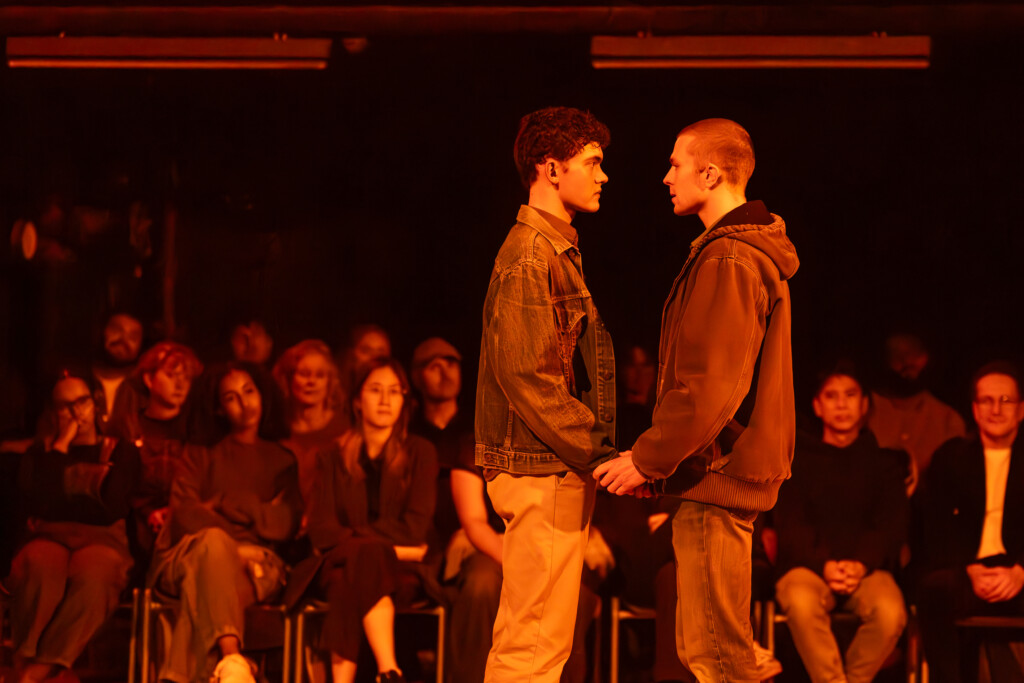
Related Posts
Review: Boys from the Blackstuff at the National Theatre
A vivid stage revival capturing the raw energy of class struggle and community in working-class Britain.
Michael Ahomka‑Lindsay Transforms Cliff Bradshaw Role in Cabaret
An actor re-imagines a classic role with new cultural nuance and identity at the heart of the performance.
Stage to Screen: Ben Palacios’ Diverse Journey
A profile of an actor navigating theatre and film, exploring craft, transition, and versatility.
Jack McMullen Talks This City Is Ours, Sean Bean & British Crime Drama
An actor’s reflection on layered roles, emotional truth and working in high-stakes storytelling.
Sam Buchanan Shines in BBC’s Just Act Normal
A deep dive into a performer’s work in a character-driven series that blends vulnerability, heart and complexity.












